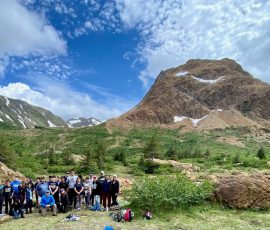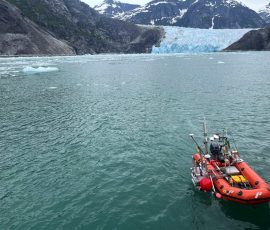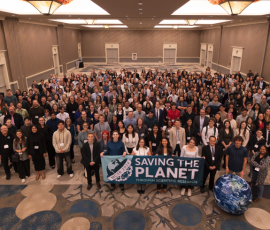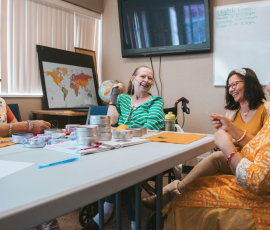In June, we were pleased to sit down with Dr. Moses Lee, Vice President of Scientific Research Grants & Programming, for a conversation about this area of the Trust’s work. This was one of seven sessions for our virtual Founder’s Day celebration where we got to hear about the Trust’s work across our region, learn more about recent organizational shifts, and hear from leadership.
Because we were not able to address all audience questions live, we wanted to follow up with Dr. Moses Lee and respond to those we missed. Read Moses’ answers below, and scroll down for the session recording with timestamps of the conversation.
Q&As
These were questions registrants submitted before the session, or that attendees submitted during the session, that we didn’t have time to answer live. We appreciate your curiosity, and were pleased to follow up with Dr. Lee to answer some of these questions.
To what degree would Murdock consider post-fire research in Oregon’s torched landscapes to better understand our climate change resilience, which then informs development of curriculum for out-of-school environment education programs?
This certainly sounds like exciting and important research, and the Trust is interested in projects that explore the current state of our landscapes for the sake of a better future. In fact, we have funded fire rehabilitation and related forest resilience efforts before, and are always happy to consider new opportunities to support this work. Depending on the type of funding support needed (i.e. instrumentation, capital, personnel) this work may or may not be eligible for a Trust grant, and it may fall into either Scientific Research or Health & Environmental Stewardship (though knowing the sector is not necessary for your application). I would encourage you to explore the specific types of funding opportunities we have on our website to see if it fits with your needed funding support.
Would RAISE be a good mechanism for a university/community college partnership around undergraduate research?
An excellent question! RAISE program alliances must have at least three institutions: one private college or university that is part of the MCSR program and received an MCSRP grant, one private undergraduate institution that has not received an MCSRP grant, and 1-2 additional institutions of the alliance’s choosing, including a few eligible public predominantly undergraduate universities invited to the Trust’s MCSR Conference. At this time, community colleges are not eligible. However, the Trust is always open to feedback and new ideas for this program moving forward, so do stay connected in case this becomes a possibility!
Can you tell us more about the commercialization initiative?
Indeed! The commercialization initiation grant program is one of our most exciting opportunities for supporting the process by which scientific research impacts real communities. It is an invitation-only program eligible to certain major research universities and biomedical research institutions across the Pacific Northwest that supports the commercialization of bench discoveries to market. In the past, we have helped fund the commercialization of a renewable energy grid for flow battery technology, novel regenerable resin to capture and destroy certain chemicals in contaminated water, novel cancer immunotherapy drugs, and many more exciting projects. You can learn more about this program here.
Is there a way we can bring non-traditional (say after-school) programs into scientific research?
This is a good and important question. Research shows that one of the most effective ways to strengthen the pipeline of future scientists is to expose them to science early and often. Having after-school programs that engage our youngest students in the process of scientific inquiry could certainly strengthen their likelihood of entering the sciences in the future.
At the Trust, we are encouraged to partner with a number of nonprofits that are getting creative with after-school and nontraditional methods of STEM education and research. For example, nonprofits like Washington STEM, Code Girls United, IGNITE Worldwide, Oregon Robotics Tournament & Outreach Program, In4All, and many others ensure STEM education is accessible to those who may have been less likely to encounter it before, and find creative ways to apply STEM subjects to real-world challenges that students today care about. There are also many museums and similar institutions creating public spaces for engaging with the world around us, such as Alaska SeaLife Center, Prince William Sound Science & Technology Institute, Montana Outdoor Science School, Oregon Museum of Science & Industry, Seattle Universal Math Museum, and many others. The more creative public and after-school opportunities for encounters with the sciences, the stronger our current and future science community will be!
Watch the full recording and find the topics that interest you most using the timestamps below.
The Conversation
01:03: Why the Trust invests in scientific research
02:45: Why funders should support STEM education
06:13: Investing in the next generation of scientists
11:34: Fostering collaboration in the sciences
14:48: Benefits of the sectoral model
21:17: Spatiolomics
23:19: Standout scientific research areas in this region
25:50: Challenges in the sciences in this region







